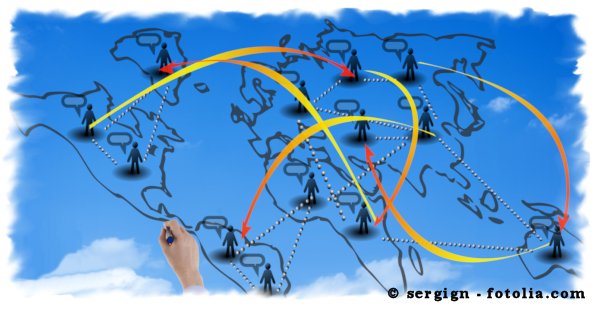When and where we live is determined by God
Devarim
For the week of July 25, 2015 / 9 Av 5775
Torah: Devarim/Deuteronomy 1:1-3:22
Haftarah: Isaiah 1:1-27
The Sovereign God

And the LORD said to me, "Do not harass Moab or contend with them in battle, for I will not give you any of their land for a possession, because I have given Ar to the people of Lot for a possession." (Devarim/Deuteronomy 3:9)
This week begins the book of Devarim (English: Deuteronomy), which starts with an overview of Israel's journey from Egypt to the border of the Promised Land. For this week's message I want to look at some implications of the verse quoted above. Moses recounts how when Israel faced various conflicts as they neared the end of their wilderness wanderings, they were not to engage the people of Moab. Our verse gives us the reason why. God had given that region to the descendants of Lot, Abraham's nephew. So this means the Land of Israel is not the only territory in the world given to a particular people by God. This then begs the question are all territorial rights established by God?
Those who regard biblical revelation through the lens of the evolution of religion wrongly ascribe to the Israel of Moses' day a narrow and nationalistic view of their God. While it is true that it was common for people to limit the rule of their god or gods to the borders of their nation, the people of Israel were expected to understand that their God was not restricted to the land of their domain, but as the creator of heaven and earth, he was the only true God, the Master of the Universe. I can't speak for the theology of individual Israelites of course, but the revelation given to them by Moses clearly viewed the God of Israel as the sovereign over the whole earth. The statement concerning God's giving the land of Moab to Lot's descendants is, therefore, an example God's reign beyond Israel's borders.
The reference to Moab, however, does not in itself establish a universal principle concerning divinely determined territorial allotments. While there are certain regions of the world where God has made such determinations, we have no reason to believe this applies to the world in general. Or do we? Many years later, Paul when speaking to a pagan audience in Athens declared:
And [God] made from one man every nation of mankind to live on all the face of the earth, having determined allotted periods and the boundaries of their dwelling place, that they should seek God, and perhaps feel their way toward him and find him. (Acts 17:26-27)
Paul, whose whole outlook on life was based on the Hebrew Scriptures, understood from the perspective of the coming of the Messiah, and illumined through the Holy Spirit, here asserts that God determines when and where each of us live in order that we would have the opportunity to know him. His reference to boundaries is informative in that essential to our placement and participation in world history is our national and cultural situations. How could God accomplish this if he hasn't overseen the migration and settlements of peoples throughout time?
This doesn't mean, however, that everything that people have done in the acquisition of territory throughout history is good, right, and just. For example, from the reading of the Hebrew prophets, we learn that there have been times when nations have been used by God to bring judgement on other nations, but went beyond the limitations of justice and brought judgement upon themselves as a result (Isaiah 47:1-7). We also know that in the unfolding of God's purposes, he may leverage the evil intensions of some in order to bring about a good objective (see Bereshit/Genesis 50:20; Romans 8:28). While the good accomplished doesn't negate the need to address the bad, the bad doesn't undermine the lasting benefit of the good.
It is common among some people, who currently inhabit what was at one time known as the New World to carry a level of shame over the apparent injustices of the colonial powers who established the countries in which we now live. While there is certainly the need to effectively address at least some of those injustices, it does us no good to pine after a hypothetical past where colonialization never occurred. Besides the unreasonableness of attempting to revert to what some may think of as an ideal past, from a biblical perspective we would be denying God's sovereign oversight in the establishment of boundaries and migration of peoples. It is therefore possible to acknowledge the wrongs of the past, while still appreciating the sovereignty of God in the overseeing of the large migration of people to the New World and elsewhere.
---
Unless otherwise noted, scripture quotations are from The Holy Bible,
English Standard Version®, copyright © 2001 by Crossway Bibles, a
publishing ministry of Good News Publishers. Used by permission. All
rights reserved.
Comments? E-mail: comments@torahbytes.org
Subscribe?
To have TorahBytes e-mailed to
you weekly, enter your e-mail address and press Subscribe
[ More TorahBytes ] [ TorahBytes Home ]
